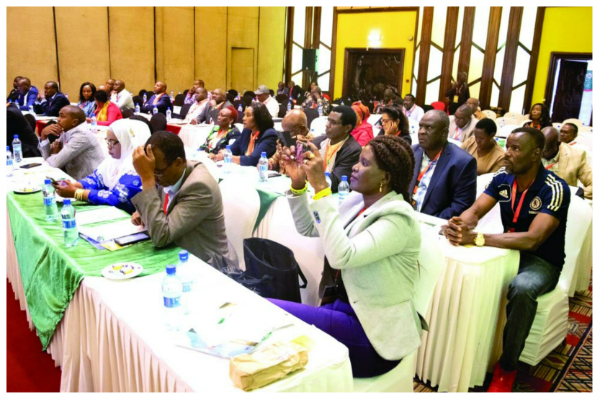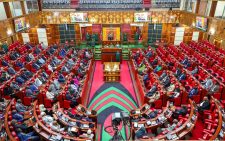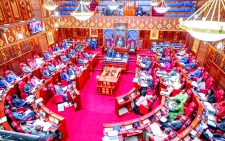Don’t copy 261 dodgers who skipped House, new MPs told

At least 261 Members of the National Assembly who served in the 12th parliament skipped more than 50 House sittings, exposing the extent to which lawmakers forego parliamentary business to attend to private matters.
Details obtained from the Parliamentary Records Office revealed that the MPs, who represent three-quarters of the total membership of the National Assembly, did not lose their seats, mainly due to poor record keeping in Parliament.
The most notorious absentees included the immediate former Rongai MP Raymond Moi and outgoing Emgwen MP Alex Kosgei. They collectively skipped 181 sittings in a year alone without permission.
Poor records
They, however, got away with their transgressions because Parliament had no proper record keeping mechanisms.
According to the records, Raymond Moi skipped 102 sittings and Kosgei 79 sittings.
According to the Constitution, a seat shall be declared vacant if a member skips eight sessions without notifying the Speaker of their absence. A session starts every second week of February and ends every first week of December.
“The office of a Member of Parliament becomes vacant if the member dies or if, during any session of Parliament, the member is absent from eight sittings of the relevant House without permission, in writing, from the Speaker, and is unable to offer a satisfactory explanation for the absence to the relevant committee.”
The document presented to MPs by officers from the parliamentary legal department during the ongoing five-day retreat at a Nairobi hotel, shows that Moi and Kosgei survived at a time when Parliament was transiting from the analogue system of record keeping to the digital system, following the introduction of biometrics.
“I can tell you that it was very funny; after investigations we found out that Moi had missed 102 sessions and Kosgei had missed 78 sessions. But they just got away with it because at that time we had poor record keeping in Parliament. It is this time that we were transiting to the digital system and we just had to let the matter rest there,” said one of the staff members.
Rarieda MP Otiende Amollo, who was attending the session, warned the lawmakers to be careful not to miss sessions as they would automatically lose their seats.
He explained to them that most of the former members managed to serve their full terms due to the magnanimity of the Speaker and the ambiguity of the law on the mode through which one should inform the Speaker of one’s absence.
Otiende warned the MPs against legislating such a move to proscribe the mode of communication, saying such a provision would later haunt them. “I want to tell you members that you let this matter be as unclear as possible. If you start specifying on what mode to write to the Speaker, you will make it so easy for someone to remove you from office. If you do this, 90 per cent of you will not make it,” warned Otiende.
He added: “Let me tell you, when we were making this law, we said eight sessions because we wanted members to attend sessions. What I did not know was that I would also be a member. That is when I came to realise it is so easy to skip eight sessions. What helped some of us in the last Parliament is the ambiguity in law.”
The Moi and Kosgei case was brought to the limelight after two voters filed a petition in the National Assembly, seeking their removal from office for absconding House sittings without the permission of the Speaker.
The petitions were based on Article 103(1) (b) of the Constitution, which empowers the Speaker to declare the office of an MP vacant in one misses eight consecutive sittings without permission.
House discipline
Following the petition, then-deputy Speaker Joyce Laboso (deceased) referred the matter to the Powers and Privileges Committee that was chaired by National Assembly Speaker Justin Muturi. This committee is charged with investigating all matters pertaining to House discipline.
Discussions on the matter started after staff from the legal department reminded the lawmakers not to skip more than eight House sittings in a session without notifying the Speaker. This is unlike Members of the County Assemblies, who can only lose their seats if they skip eight sessions for the five years they are in office.
The officers informed the members that once it is established that they have skipped more than eight sessions, investigations are commenced by the Powers and Privileges Committee and later a report is tabled in the House for adoption without changes. If adopted, the member could lose their seat.
“It is important that we don’t try to fix this matter of communication to our rules. My request is that we always notify the Speaker if you know you will be away for more than eight sessions,” said the official.












